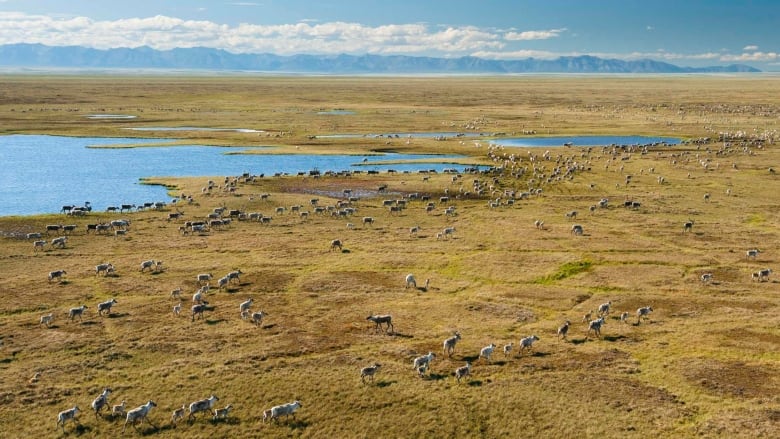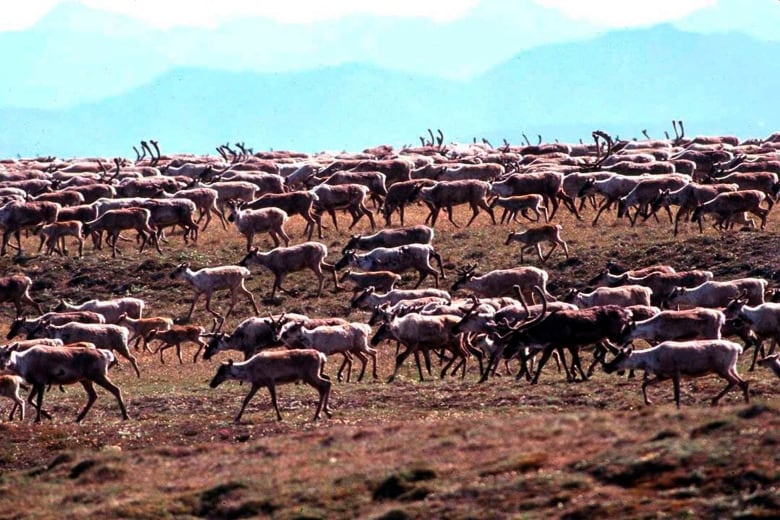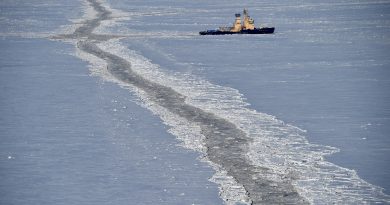Planned drilling in ANWR: U.S. ignoring international caribou agreement, say Indigenous and territorial govs

Canadian and Indigenous governments say the U.S. Bureau of Land Management needs to consult more broadly on its plans to sell oil and gas leases in the Arctic National Wildlife Refuge (ANWR).
In 2017, U.S. Congress passed the U.S. Tax Cuts and Jobs Act, which opened 1.5-million acres of the Arctic National Wildlife Refuge to future lease sales.
The coastal plain is the calving ground of the Porcupine Caribou herd, with 85 per cent of harvesting from the herd taking place in Canada. Gwich’in in the Northwest Territories, Vuntut Gwitchin and Inuvialuit have hunted Porcupine Caribou for generations.
In 1987, Canada and the U.S. signed the International Porcupine Caribou Agreement to protect the herd. The agreement calls for consultation if there is any possible disruption to caribou migration or harvest.
The governments of the N.W.T. and Yukon have both submitted comments to the U.S. Bureau of Land Management regarding the proposed leasing program, as have the Gwich’in Tribal Council and the Vuntut Gwich’in First Nation.
Indigenous rights
A March 13 document submitted by the Gwich’in Tribal Council states that they support sustainable resource development but oppose development within ANWR because of potential harm to caribou populations.
“The relationship between the Gwich’in and the Porcupine Caribou herd remains very strong as it has for thousands of years,” Gwich’in Tribal Council Grand Chief Bobbie Jo Greenland-Morgan told CBC about the submission.
“This speaks to our culture, our health and our subsistence and it is more our Gwich’in right as much as it is our human right,” she said.

“The decision-makers, in this case those in the U.S. government, need to be aware and be fully informed and recognize the obligations in these agreements.”
Greenland-Morgan said the final plan must “seriously consider” traditional knowledge.
Failure to consult internationally
For their part, the Vuntut Gwitchin First Nation says the U.S. isn’t meeting the terms of the 1987 Porcupine Caribou agreement because it failed to consult internationally on the leasing program.
In their comments, the VuntutGwitchin say the draft plan was “rushed” and “so deficient” that the Bureau of Land Management (BLM) must reopen the public comment period.

The comment period closed last week.
The VuntutGwitchin First Nation called for subsistence hearings in Old Crow, Yukon, and other Indigenous communities in Canada.
The First Nation considers development in the refuge to be a “direct threat” to the health of the herd and the “physical, cultural and spiritual survival” of the Vuntut Gwitchin.
They say there is “no replacement for the Porcupine caribou should the population fall below sustainable harvest rates.”
The government of the Northwest Territories is asking the Bureau of Land Management to produce a supplemental plan that includes impacts to harvesters or the herd.
If the U.S. wants to fulfill its obligations under the international Porcupine Caribou agreement, it should hold public hearings at minimum in Aklavik, Fort McPherson and Tsiigehtchic (communities in Canada’s Northwest Territories), the First Nation’s submission states.
The government of the N.W.T. lacks “confidence” that if development proceeds as outlined in the draft plan, risks to caribou will be mitigated.
Consultation won’t stop at border
The Bureau of Land Management is considering a range of options, including leasing the full 1.5-million acres. Other options provide surface occupancy restrictions on parts of the coastal plain.
The bureau’s draft plan states that it is required to hold lease sales under U.S. tax law.
The final environmental impact statement will determine how much of the 1.5-million-acre area will be opened to development and management conditions.
It could take the Bureau of Land Management months to complete a final plan, said spokesperson Lesli Ellis-Wouters. It received more than 100,000 comments on its draft plan.
The U.S. government will show the final plan addresses public concerns, including those brought forward by Canadian and Indigenous governments, said Ellis-Wouters, adding that consultation will not stop at the border.
Related stories from around the North:
Canada: Caribou and drilling in ANWR: Canadian research critical of U.S. report, CBC News
Finland: Stricter mining regulations and oversight needed in the Arctic, Finnish report says, Yle News
Norway: Urgent action needed to protect Arctic Ocean, WWF says, The Independent Barents Observer
Russia: Large ore mine to be developed in remote Russian Arctic, The Independent Barents Observer
Sweden: Why some northerners will welcome Sweden’s relaxed shoreline protection rules, Radio Sweden
United States: Enviro group says U.S. Interior Dept. hid gaps in ANWR science, Alaska Public Media



